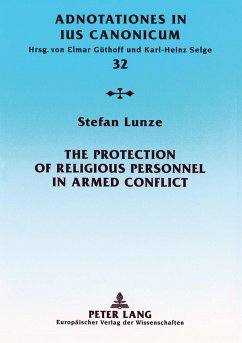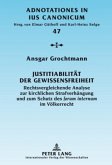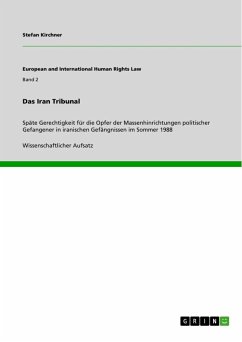This book follows the protection of religious ministers in armed conflict from its roots in religious law to the present-day status of religious personnel in international humanitarian law. The details of this legal protection are discussed as well as the practice of religious ministry to troops and prisoners of war. The author provides a comparison of protection of spiritual assistance to armed forces with protection granted to civilian ministry. Considering the example of German chaplaincy, he also examines interactions of international protection with the national status of religious personnel. Finally, problematic issues as new developments in the definition of religious personnel or their role in the conflicts of the 21st century are raised and relevant recent cases identified.
«...die sehr gut lesbare Untersuchung [bietet]...eine Fülle aktueller und gut recherchierter Beispiele aus der Arbeit von Soldatenseelsorgern sowie aus verwandten Problemfeldern und schildert anschaulich die rechtlichen, politischen und theologischen Hintergründe.» (Jörg Ennuschat, Zeitschrift für evangelisches Kirchenrecht)








